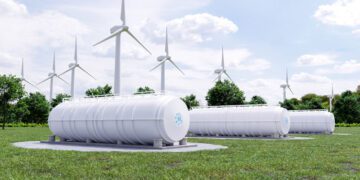From discarded food scraps to agricultural residues, organic waste has often been viewed as a disposal challenge. However, in the era of sustainability, this “waste” is being reimagined as a treasure trove of energy. As the old adage goes, “One person’s trash is another person’s treasure.” In the realm of bioenergy, this couldn’t be more accurate, as organic waste is transformed into valuable energy resources.
Understanding the Basics of Bioenergy
Bioenergy is derived from organic materials, known as biomass, which includes plant and animal waste. When this biomass is processed and converted, it releases energy in the form of electricity, heat, or biofuels. This energy generation process can be achieved through various technologies, such as anaerobic digestion, pyrolysis, and fermentation.
Agricultural Residues: From Fields to Fuel
A significant portion of agricultural produce remains unused and is typically discarded as waste. These residues, from stalks to shells, can be turned into bioenergy. Ventures focusing on this segment can collaborate with farmers, offering them an additional revenue stream while producing energy and reducing waste.
Municipal Waste Management: Cities Powering Themselves
Urban centers generate vast amounts of organic waste daily. Instead of sending them to landfills, cities are now exploring waste-to-energy plants that convert this trash into electricity. Investing in or partnering with municipal bodies for such projects can offer long-term revenue models with the dual benefit of waste reduction and energy generation.
Liquid Gold: The Potential of Waste Water
Wastewater treatment plants handle vast volumes of water daily, producing sludge as a byproduct. This sludge can be a source of bioenergy. Upgrading existing wastewater facilities to include bioenergy production units or establishing new plants with integrated energy solutions can be a promising venture.
Innovations in Biofuels
Beyond electricity and heat, organic waste is also a precursor for biofuels like biodiesel and bioethanol. With the transportation sector seeking sustainable fuel alternatives, businesses that focus on producing and refining these biofuels stand to gain considerably.
Navigating the Challenges
While the prospects in the bioenergy sector are promising, challenges remain. These include ensuring the consistent supply of organic waste, adhering to environmental standards, and managing technological complexities. However, with innovation, collaboration, and a commitment to sustainability, these hurdles can be effectively addressed.
Transforming Waste into Wealth
The bioenergy boom underscores a pivotal shift in our perception of waste. Organic waste-to-energy ventures are not just business opportunities; they’re an embodiment of the circular economy principle. As the world gravitates towards greener solutions, bioenergy stands out as a beacon of sustainable progress.




















